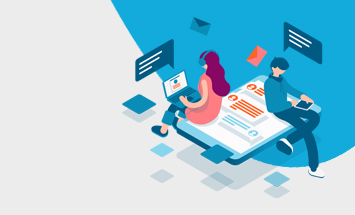"Working remotely… Staying safe and staying focused"
We are experiencing extraordinary times at the moment and we are all asked to adapt to these situations. In this blogpost SogetiLabs member Marco Venzelaar is inspired by NASA astronauts and writes about a few skills that you can benefit from.
We are experiencing extraordinary times at the moment and we are all asked to adapt to these situations. One of those changes that has been now thrust upon us is working from home and while for some of us it might come naturally it is not a given that everyone will find that experience rewarding. At Sogeti, we have gone within a week from a company mainly working on client sides or in our office to the vast majority working from home without too many issues. That is partially since a large part of the organisation has a high mobility rate with our customers, but there are other components beyond just working from home that are now becoming more important. How do we deal with a prolonged period of time working from home and even potentially in self-isolation?
One organisation that has done a lot of research into living and working in isolation is NASA. Astronauts spend long periods of time living and working in isolation and in more hostile environments especially now that they are planning to go to Mars that research is still ongoing. While your household might not the same as outer space, there are a lot of similarities with our current situation. A number of skills that they focus on to make living and working in isolation work for yourself but also the people in the immediate area around you are around five key points;
Communication – Make sure you talk to the people you work with but also with the people in the direct vicinity. Never assume that people immediately understand why you are doing what you are doing. When we are in an office, we normally have a lot of subtle communications, some non-verbal that we now miss, so talking to your colleague about work and also “watercooler” moments are important.
Leadership/Followership – Work together, help each other to thrive and reach your goals, provide the environment to work together. Your skills might complement other members’ tasks. In these circumstances, the ability to trust one and another is ever so important. Community spirit is all around us, we see evidence of that more than ever, try to contribute to that in whatever small way you can.
Self-Care – Make sure you are healthy and keep fit. Small exercises can go a long way, but also look after the mind. Find something stimulating to do and not spend all the time behind the computer or television, change the scenery even if it is picking up a book, playing an instrument, or opening a window and just taking in the scenery.
Team Care – Help each other, be there for one another. Talk and socialise, at Sogeti have started to put in coffee/tea-break team calls where we will not talk about work. It is totally a voluntary meeting, but the team members are encouraged to join the call even if it is to just see some different phases. I even have had virtual after work drinks!
Group Living – Try to stay positive and support each other. Respect one another as we are all different and experience these situations differently and talk about it. Be informed, including about what others think about the work you do and about the environment we live in.
The NASA research also includes having astronauts write diaries during their time onboard the International Space Station (ISS). Key topics that came up about their time in isolation were: Work, Outside Communications, Adjustment to working in isolation, and Group Interaction. This was further added by topics concerning: Recreation/Leisure, Equipment, Events, Organization/Management, Sleep, and Food.
Finally some words from Chris Hadfield, a Canadian astronaut, who has spent months isolation hurdling around the earth, on some similar tips if you find yourself having to self-isolation. Understand your situation, set out your, what your constraints are and take action! And like any true DevOps style, you repeat the steps above!
Stay safe, stay positive and keep on communicating!
- Marco VenzelaarManaging Consultant Test Automation UK
+44 (0) 20 7014 8900
 Marco VenzelaarManaging Consultant Test Automation UK
Marco VenzelaarManaging Consultant Test Automation UK
+44 (0) 20 7014 8900





